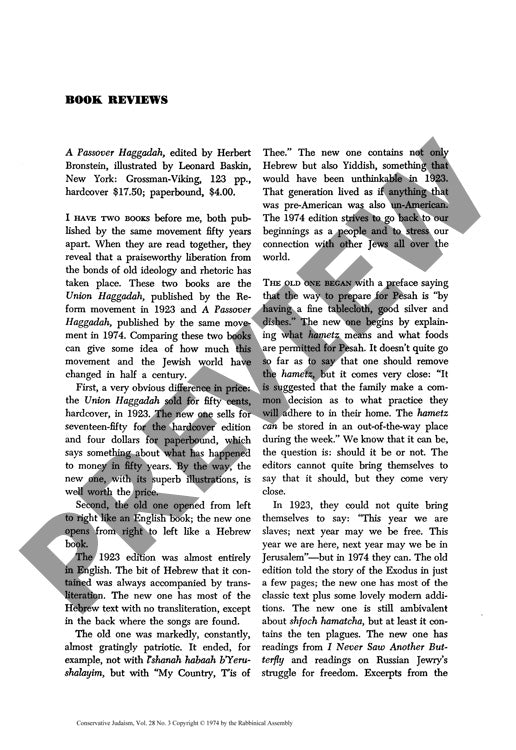Book Reviews
Couldn't load pickup availability
American Jewish religious movements underwent profound transformation between 1923-1974, shifting from assimilationist tendencies toward renewed embrace of traditional practices and global Jewish identity. Through comparative analysis of Reform movement Haggadot separated by fifty years, alongside scholarly works on Maimonides, denominational development, and Holocaust history, clear patterns of ideological evolution emerge. The research methodology centered on textual analysis, revealing how Reform Judaism increasingly incorporated Holocaust memory, contemporary Jewish struggles, Hebrew and Yiddish texts, and restored traditional Passover elements previously abandoned. Twersky's Maimonides Reader exemplifies successful adaptation of classical Jewish philosophy for modern audiences through careful excerpting and contextual commentary. Rosenthal's comparative analysis of Orthodox, Conservative, Reform, and Reconstructionist movements provides comprehensive ideological mapping while exposing gaps between theoretical positions and practical implementation. Documentation of Holocaust-era refugee policies further illuminates American Jewish institutional responses during crisis periods. Together, these findings demonstrate substantial metamorphosis within American Jewish religious life, reflecting broader cultural shifts, Israel's establishment, and Holocaust consciousness, suggesting denominational boundaries and ideologies were far more fluid than previously understood.

More Information
-
Physical Description
-
Publication Information
Published 1974
ISBN
-
Publication Credits

